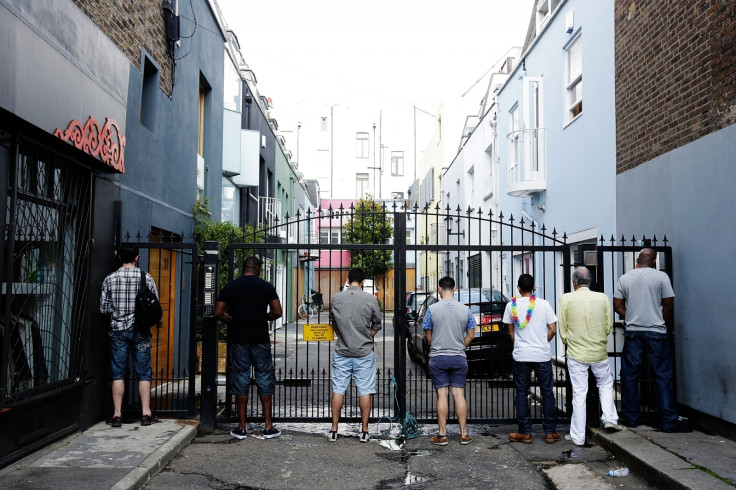Urinating in public: What are the rules?
UK councils have closed over 50% of public toilets since 2011.

The case of a Dutch woman being fined for urinating in public sparked outrage this week.
Geerte Piening was fined €90 (£80) for peeing in a public alleyway in Amsterdam two years ago. She claims she had no other choice as all the nearby facilities had closed, but the judge told her that she should have used a male urinal.
"Embarrassing" is the word Piening used to describe the lack of toilet facilities for women in Amsterdam.
"There are 35 public loos for men and two for women," she told Dutch newspaper Het Parool. "That's not right is it? Isn't it embarrassing for a tourist city like Amsterdam that women have nowhere to go?"
Lack of toilets leads woman to pee in public & get fined. Judge says: "use the urinal". But how?? #mansplaining #wildplassen #ergonomics pic.twitter.com/LisnuJ0sti
— Ilse Harms (@ilseharms) September 19, 2017
The judge acknowledged that there are fewer female public toilets, but said women are less likely to use them anyway. "You are only the second woman I've seen in court for this," he told Piening.
Piening's case triggered a debate on whether there should be strict laws against public urination when there is such a shortage of toilets.
In the Netherlands, there are 565 public toilets, according to the app Hoge Nood, translated as 'Desperate Need'. Of these, 204 are urinals, which are not designed for women.
Just like in the Netherlands, urinating in public in England and Wales is an offence punishable with a fine under the 1986 Public Order Act. At the end of last month, a man in Teesside was fined £291 for relieving himself in public. York councillor Sam Lisle said his act was "offensive, insanitary and illegal".
The number of toilet facilities across Britain is less well documented, but the British Toilet Association (BTA) told IBTimes UK that there is huge shortage, with local councils closing down over 50% of public toilets since 2011 when council budgets were slashed by 20%.
The BTA estimates that there currently are between 2,500 to 3,500 public toilets in Britain. A decade ago there were more than 10,000 facilities.
Councils have no legal obligation to provide toilet facilities, which fall under 'discretionary services', Raymond Martin, the managing director of the BTA, explained.
Martin said that councils should be obliged to build and maintain public toilets.
"It's about public decency and dignity as well as people's well-being and health," he said. "Having access to a toilet is a human right."
He added that he has heard of many instances when elderly people were unable to access a toilet and "became very upset and sometimes ended up soiling themselves".
Martin said that emergency workers and bus drivers rely on being able to use a public toilet and that the shortage is causing a rise in public urination.
The prosecution costs for an individual who has urinated in public can amount to £5,000, according to Martin.
"It's a false economy. That money could be used on keeping a public toilet open for a year," he said.
When asked about Piening's case, he responded: "Gender-neutral toilets should replace urinals and toilets should be open 24 hours to prevent anti-social behaviour."
© Copyright IBTimes 2024. All rights reserved.






